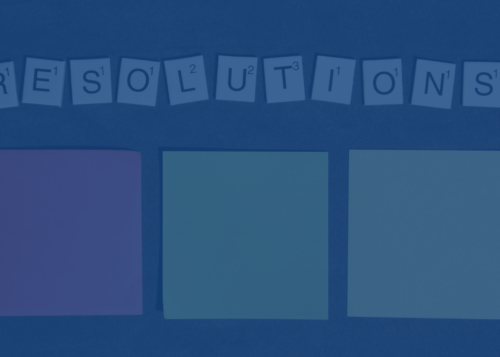SDR Mindset

SDR Symposium | June, 2021
There’s no sugarcoating it – the role of an SDR is tough. Reps face constant rejection, processes are almost always changing, they’re navigating peaks and valleys…let’s just say that it’s not for the faint of heart.
And if you add in the fact that modern buyers have changed the way they interact with sales teams, you have a recipe for some tough sledding. Gone are the days of ‘spray and pray’ and in are the days of guiding prospects down the funnel with storytelling, subject matter expertise, and social nurturing.
That being said, there are some things you can do – both as an SDR and as a manager – to make the job easier.
❌ It’s not finding the perfect subject line.
❌ It’s not buying the newest piece of technology.
❌ It’s not tweaking your value props or pitch for the thousandth time.
We think the best way to make the job easier is by adopting & cultivating the right mindset.
SDRs who can manage the mental aspect of sales and focus on growing with the role have a much higher success rate than those who let the role consume them.
We put together a panel of some top dD SDRs & Managers to cover the mental aspect of sales. They talk about their experience adopting & building the right mindset and how you can set yourself up for success in similar ways.
The Guests

Eli Smith
Director, Client Success

Craig Ferrara
Director, Client Success

Nathan Sugerman
SDR

Ryan Moloney
Sr. SDR
Our conversation was more focused on client interaction and preparing our reps for those conversations, but man if that doesn’t speak to the mindset a rep needs to succeed I don’t know what does!
Our discussion around mindset really focused on a few key areas:
Preparation
Building Confidence
Understanding the Role of an SDR
We’ll tackle each of the above to help understand what mindset our SDRs & their managers are adopting for overall success.
Preparation
Possible the best advice given during this entire symposium came from all of our panelists:
If you want to succeed as an SDR, you have to prepare.
Nothing about the role should be ad-hoc. That means all of your calling blocks, research sessions, and email templates have set processes associated with them. You know what your goal is, the components associated with achieving it, and how you go about executing them.
Craig is a fan of agendas – both formal and informal. He’ll set the agenda with his reps if he calls for the meeting, and he expects his reps to set the agenda if they call for the meeting. Not only does everyone get on the same page beforehand to make sure the meeting is efficient, but it gives his reps a sense of autonomy and ownership of the role (more on that later). It also lets him know what his reps are prioritizing, if anything, and gives him a chance to ‘course correct’ if he sees something slip. Instead of taking a heavy-handed approach with it, he’d rather let the SDR figure things out on their own and correct it on their own.
On that note, Nathan and Ryan are both big fans of documentation. Whether it’s a Google Doc, a Gmail task list, or good old-fashioned pen and paper, they both agreed that in order to be successful you had to be organized and deliberate with your tasks. It can be as complicated as your daily agenda or as simple as topics to bring up during a 1-on-1 with your manager – write it down!
On that note…Ryan suggests keeping a notebook by your side at all times. If something comes up during conversation and you want to ask your manager about it, you can jot it down in that notebook. That way, when your scheduled 1-on-1 comes around you have a list of topics to discuss.
Outside of notes and agendas, Eli helps his reps prepare by accurately setting expectations. He wants the SDRs on his team to succeed, but if they don’t know how he defines success then that won’t be possible. He noted that having transparent communication with his reps about pretty much everything was much better than keeping them in the dark – and vice versa. The more they communicated, the better. He lets them know if anything has changed from a goal or process point of view, and he expects his reps to match that by alerting him of any important conversation notes, trends, or issues they might be facing. That way they know exactly what to talk about during their meetings.
Pro tip from our panel…when you meet with your manager, don’t just relay some of the issues you’ve been facing – prepare solutions as well. If you own the role and come to the table with possible answers to your own question, the conversation will be focused more on solutions (and actually helping you overcome a challenge) than on the problem itself.
Reps who prep (I should trademark that…) often demonstrate the right mindset for success as an SDR – why? When you can trust that your rep is effectively prioritizing their days and ensuring their 1-on-1 meetings are successful, you can trust that they have the autonomy and responsibility to succeed as an SDR. Taking ownership of one’s actions is a huge component of being an SDR. If you can remove yourself from the ‘robotic’ aspect of the role and understand what levers you can pull to impact success, you shed that stigma associated with the role and start to contribute more than what was expected of you.
Building Confidence
Not all reps come into the role and are ready to crush it on day 1. Especially in regards to the above section – it takes a certain level of confidence to set an agenda for your manager or come to a meeting prepared with possible solutions to your own challenges.
Confidence is something that grows over time (agreed upon by our whole panel), but it’s also something that can be cultivated within the right environment.
Ryan points out that while confidence is something that grows organically, you can be deliberate about it as well. You can’t start out running – you have to crawl, then walk, then run. And for him, crawling and walking were made easier by learning from those who came before him. Specifically, he leveraged the relationship he built with his manager to slowly build up the confidence he needed for success. Or as he put it: “Observation is the greatest teacher.”
Nathan echoed Ryan’s point and took it a step further. If you want to succeed as an SDR, trust between you and your manager is crucial. But if you want to feel confident in your role, you have to be comfortable in your role. That’s why he suggests building a friendship with your manager as well. The more comfortable you are communicating with them, the more confident you’ll be in the role overall.
“I wasn’t thrown to the wolves right away, but I wasn’t allowed to not contribute either.” Ryan’s experience starting out as an SDR mimics that steady building of confidence. He wasn’t pulling reports or running his own pipeline review on day one, but he was also encouraged to go beyond the traditional role of an SDR (that robot mentioned in the previous section). SDRs need to keep an open mind to this style of growth, and managers need to cultivate it.
Speaking of which, the managers on our panel noted that while adopting this mindset is on the SDRs, it’s on the managers to make sure that the environment is properly set up for that to be possible. If your reps are looking to you for guidance, give it to them! You can’t expect them to build confidence and be comfortable in the role if you don’t create an environment where that’s possible. That means putting in the effort to communicate with your reps, building a relationship with them, helping them when they need it, encouraging them when appropriate, and being mindful of their growth.
At the end of the day, confidence is something that gets built up naturally. But if you can be deliberate about it and build an environment where you put a premium on confidence and comfort, you have the makings of a solid mindset. Reps who build and display confidence are often coachable, resilient, and curious. They go beyond the robotic side of prospecting and show that they actually care about doing a good job.
Understanding Your Role as an SDR
We touched on it a couple of times above – looking beyond the ‘robotic’ side of the sales development role. It’s easy enough to show up at work every day and do the bare minimum.
Follow the playbook, run the sequences, put in the activity, go home.
That’s the life of a C or B level rep.
But A-level reps think about the role differently. They’ve removed themselves from the ‘robotic’ side and have bought into the growth, autonomy, and intellectual curiosity of the SDR role.
Our panel likened it to being the CEO of your own small business. Looking at your role through that lens really emphasizes the weight and importance of what you’re doing.
Craig and Eli both big proponents of “owning your role.” The more autonomy you can take on the better. They shared some advice from their point of view as to how an SDR can make an impression on their managers and start adopting that mindset for success:
Transparency is key. Managers look for reps who take on more than what’s asked of them, but they also look for reps who can communicate that clearly.
Showcase some intellectual curiosity. Managers know when reps are just going through the motions. If you actually care about what you’re doing it shows, and managers are more likely to help you grow.
Always be selling yourself. Don’t go into a meeting with a down attitude – go into the meeting thinking about how you can improve. Prove to your manager that you have some resilience.
The SDRs on our panel brought up similar tactics for how they go beyond the traditional responsibilities of the role:
Your opinion and insight as an SDR are invaluable to your manager. You’re on the front lines every day gathering information that could impact company strategy – so don’t sit on it! It’s better to overshare than undershare.
Bridge the gap between sales and marketing. Get everyone in a room and talk through conversation notes, trends, results from your experiments…if you think it could impact strategy, take the initiative to bring together the right stakeholders.
Don’t limit yourself to traditional channels. Think outside the box and experiment with different forms of outreach, messaging, channels, etc. More often than not you’ll find success with something that wasn’t considered by the management team.
Now we’re not advocating for SDRs to ‘go rogue and start working for themselves – the best SDRs can balance this experimental mindset with the understanding that you’re still part of the team. The reason this mindset is prevalent in successful SDRs is because it promotes not just growth, but cohesity. SDRs who understand their role within the organization and work to improve it better themselves and everyone around them. A rising tide lifts all boats.
Mindset is a pretty loaded word. In the context of sales development, having a strong one can refer to reps who are:
Confident
Resilient
Prepared
Curious
Focused on Growth
And so much more.
And while ‘mindset’ might be loaded, you can identify when a rep has the right one versus the wrong one.
If you’re an SDR and you see yourself starting to slip, use this guide as a reminder of what you should be doing to see success.
If you’re a manager and you see your reps struggling to make that jump from a C or B-level rep to an A-level rep, use this guide to nudge them in the right direction.
Related Resources
Continue exploring

Embracing Online Sales Communities

Resolve To Be Resilient: A True Cold Calling Resolution

Advice Every SDR Should Know

Leveraging Your SDR Experience

Alternative Prospecting Methods

Building Your Sales Development Puzzle

